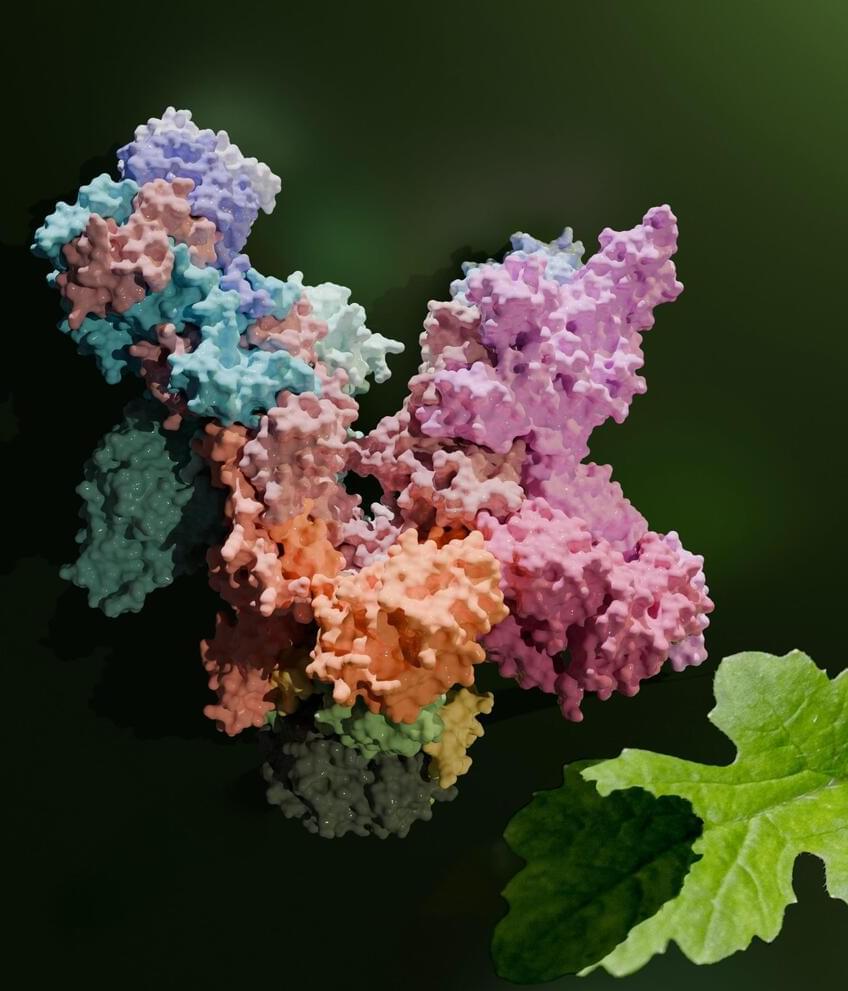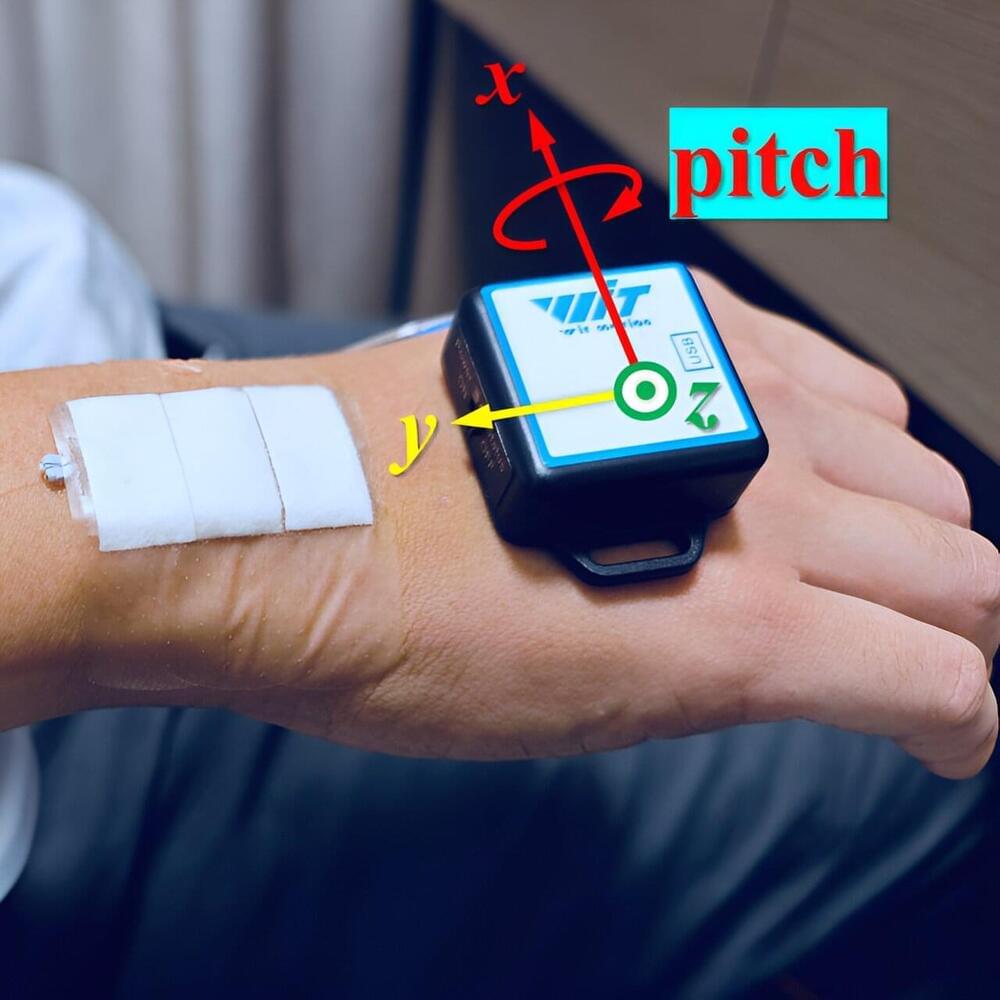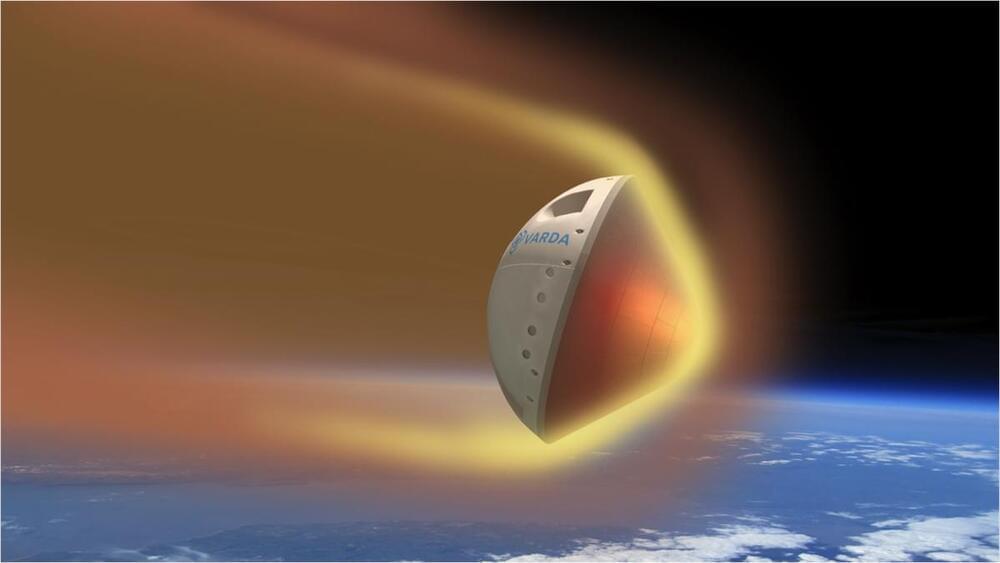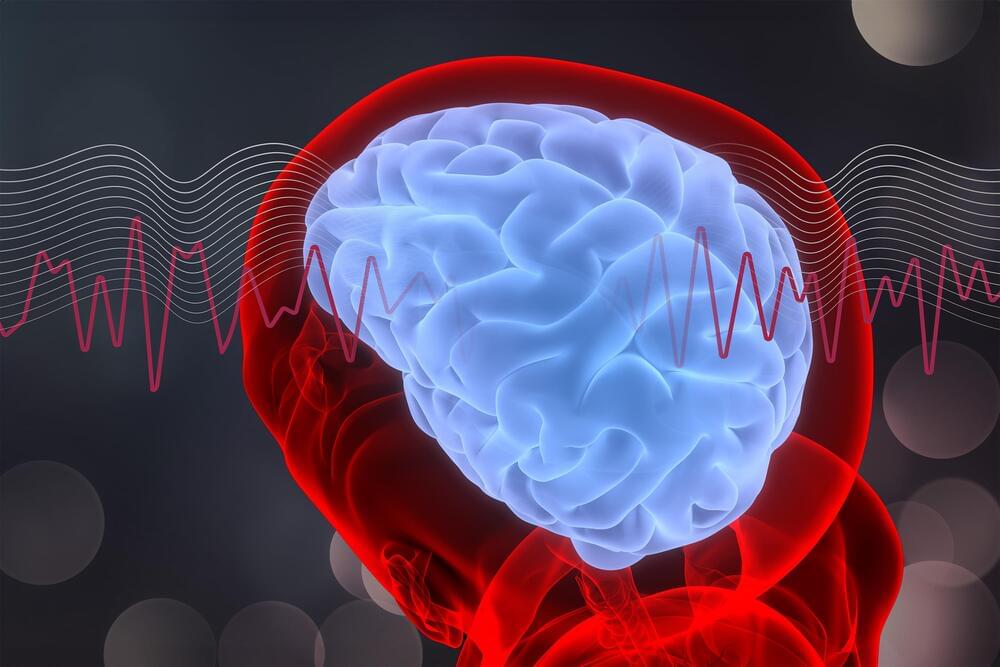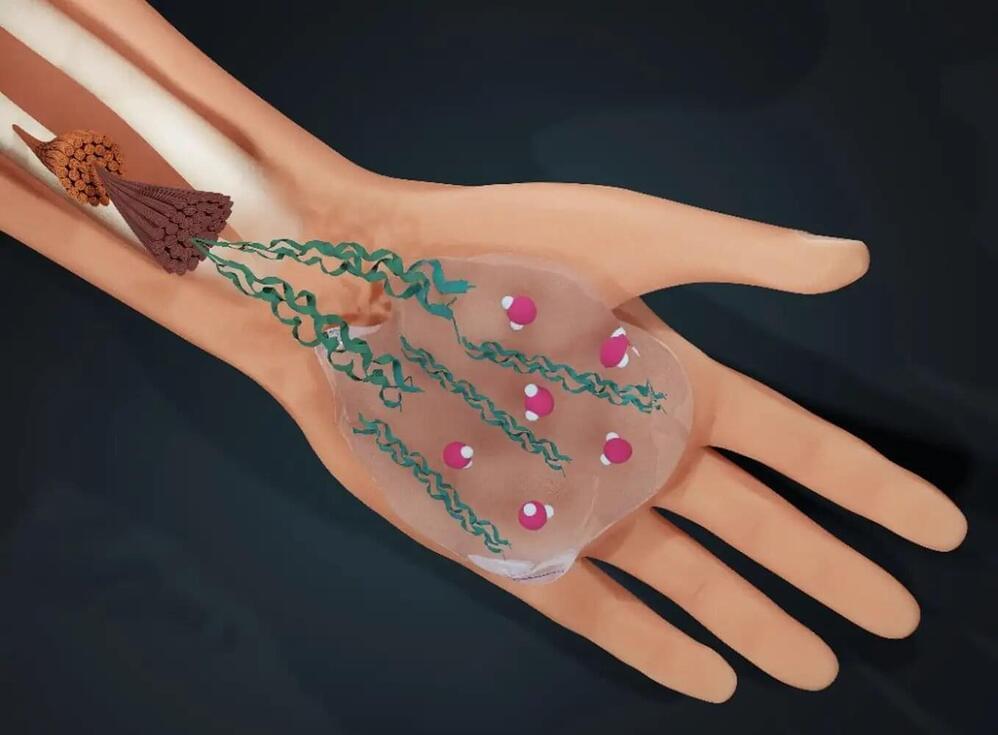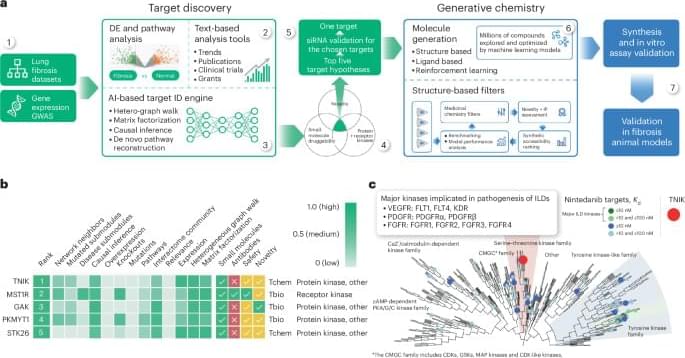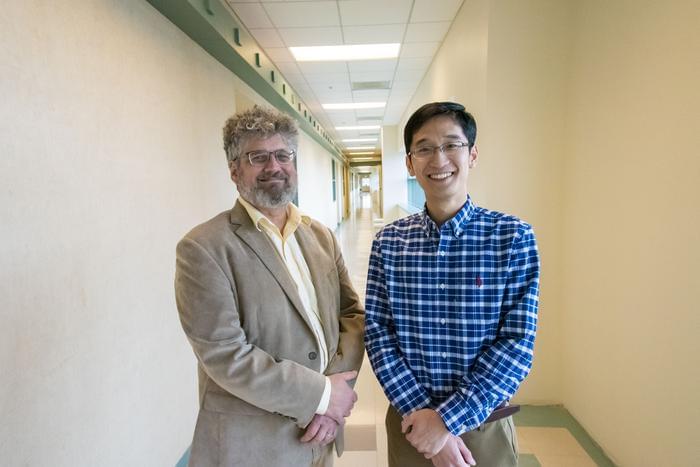Mar 10, 2024
Revolutionary 3D Snapshot Unveils Secret Machine Behind Photosynthesis
Posted by Genevieve Klien in categories: biotech/medical, chemistry, evolution, genetics
For the survival of life on Earth, the process where plants perform photosynthesis to generate oxygen and chemical energy using sunlight is crucial. Scientists from Göttingen and Hannover have now achieved a breakthrough by creating a high-resolution 3D visualization of the chloroplasts’ copying mechanism, the RNA polymerase PEP, for the first time. This intricate structure offers fresh perspectives on the operation and evolutionary history of this vital cellular apparatus, instrumental in interpreting the genetic blueprints for proteins involved in photosynthesis.
Without photosynthesis, there would be no air to breathe – it is the basis of all life on Earth. This complex process allows plants to convert carbon dioxide and water into chemical energy and oxygen using light energy from the sun. The conversion takes place in the chloroplasts, the heart of photosynthesis. Chloroplasts developed in the course of evolution when the ancestors of today’s plant cells absorbed a photosynthetic cyanobacterium. Over time, the bacterium became increasingly dependent on its “host cell”, but maintained some significant functions such as photosynthesis and parts of the bacterial genome. The chloroplast therefore still has its own DNA, which contains the blueprints for crucial proteins of the “photosynthesis machinery”
